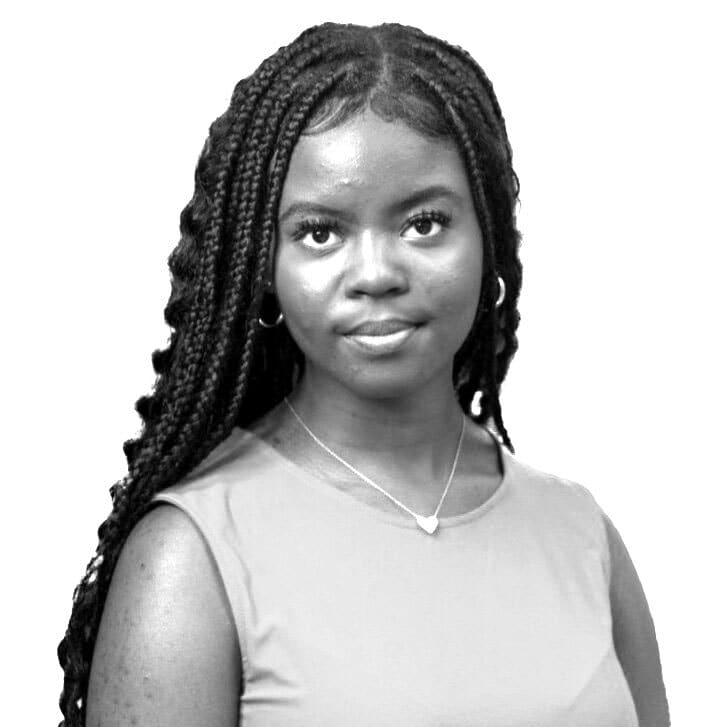Former President Donald Trump claimed Kamala Harris “turned Black” in an explosive on-stage interview Wednesday at the National Association of Black Journalists Convention in Chicago.
“She was always of Indian heritage, and she was only promoting Indian heritage,” Trump said. “I didn't know she was Black until a number of years ago when she happened to turn Black. And now she wants to be known as Black. So I don't know, is she Indian or is she Black?”
“I respect either one, but she obviously doesn’t,” Trump said. “She was Indian all the way, and then all of a sudden she made a turn and she became a Black person.”
ABC News’ Rachel Scott challenged Trump, and said that Harris had always identified as a Black woman, and had attended a Historically Black College. (Harris graduated from Howard University in 1986.)
The comments came after Scott pressed Trump on the GOP’s continued attacks on Harris as a “DEI hire” and his choice of Sen. J.D. Vance (R-OH) as his vice presidential pick. After Trump was asked if he agreed with the Republicans who consider VP Harris a DEI pick, he falsely claimed Harris only recently began identifying as a Black woman.
His attacks mirrored a 2019 GOP-led campaign that questioned whether Harris was an “American Black,” as her mother is Indian and her father is Jamaican. Then-candidate Joe Biden chastised the racist barbs, and Harris compared it to the birtherism attacks Barack Obama faced.
White House Press Secretary Karine Jean-Pierre quickly clapped back at Trump’s comments at the NABJ convention, calling his questioning “repulsive” and “insulting” during a White House press briefing.
“Only she (Harris) can speak to her experience, only she can speak to what it’s like,” Jean-Pierre said. “She is the vice president of the United States and we have to put some respect on her name.”
However, Trump later doubled down on his words via Truth Social, writing: “Crazy Kamala is saying she’s Indian, not Black. This is a big deal. Stone cold phony. She uses everybody, including her racial identity!”
In a combative appearance at the convention, Trump first attacked Scott who questioned him about his past racist rhetoric in a conversation that immediately, and consistently, went off the rails.
The former president spent over half an hour attacking Black journalists, the NABJ that hosted him, as well as Harris' own identity, in an appearance that was intended to defend his record for Black Americans, and his agenda for a second term.
The former president, appearing more than an hour after the conversation’s scheduled noon Central Time start, sat down with the trio of Scott, Fox News’ Harris Faulkner, and Semafor’s Kadia Goba.
In response to Scott asking why Black voters should be Trump about his record of questioning Nikki Haley and Barack Obama’s birthplaces, attacking Black journalists and attorneys, using racist language, and wining and dining with white supremacists, Trump launched into a tirade.
“I don’t think I’ve ever been asked a question in such a horrible matter,” he told Scott, calling ABC News a “fake news network.” “I think it’s disgraceful.”
Trump then used the question to attack NABJ for the late start time, claiming they “couldn’t get their equipment working or something.” He claimed he was told either President Joe Biden or Vice President Kamala Harris would also appear and that he couldn’t appear virtually. Therefore, he claimed, he was invited under “false pretenses,” making the incisive question even worse.
“I think it’s a very rude introduction,” Trump said. “I don’t know exactly why you would do something like that.”
“I have been the best president for Black Americans since Abraham Lincoln,” Trump said to raucous laughter.
Trump also defended the Jan. 6 rioters (saying he would pardon them if they were innocent—“They’ve been convicted,” Scott said), and doubled down on his belief that migrants entering the country from the southern border are taking “Black jobs.” Trump also said he would be willing to take a cognitive test, and speculated that Harris would fail the exam.
Queries from Faulkner and Goba ranged from meandering to direct, with Trump’s different opinions about the moderators coming through in his answers. He praised Faulkner, a Fox News veteran who interviewed him hours before the July 13 assassination attempt, as a “fantastic person” whose success he respects.
He also thanked Goba, who interviewed him in June on his relationship with the Black community, for asking her question about Republicans’ judgments of people’s personal lives in a “friendly manner.”
The conversation shut down abruptly after roughly 30 minutes of questions from the moderators, although it was originally billed as a 60 minute Q&A.
Later on Truth Social, Trump said he “crushed” the panel. “The questions were Rude and Nasty, often in the form of a statement, but we CRUSHED IT!”
Jelani Cobb, the Dean of Columbia School of Journalism, said he knew going into the conversation that it was likely a “bad” idea.
“The traditional objective of interviewing a candidate is to get clarification on their positions, Cobb said. “And I was skeptical that it would happen—and it didn’t happen.”
Cobb said the conversation ending abruptly without a Q&A from the audience was the most problematic part of the program.
“If you’re going to have a candidate like that, you should have a Q&A from the audience,” Cobb said. “This is a room full of journalists, and some of the best journalists in the county, so we should have questions from the floor.”
The conversation took place in a meeting hall right outside the hotel’s gold-encrusted grand ballroom, nearly every one of the rooms’ 1,000 seats were filled. A small group of protesters not attending the convention gathered outside the entrance of the hotel.
Trump’s last-minute appearance at the convention prompted waves of backlash from top Black journalists and NABJ officials alike. Reporters including frequent Trump target April Ryan and Jemele Hill questioned the merits of inviting the former president, while Washington Post columnist Karen Attiah resigned from her post as convention co-chair after Trump’s appearance was announced.
NABJ officials, including President Ken Lemon, tried to defend the decision by noting a tradition of inviting presidential candidates during an election year and the opportunity for Trump to face questions from top Black journalists. Those defenses, however, faced further scrutiny after a Tuesday report indicated the group rejected requests from Harris’ campaign for her to appear for a virtual chat during the convention or for an in-person session at a later date.
Harris will appear for an NABJ Q&A in September, the group announced on Wednesday.







